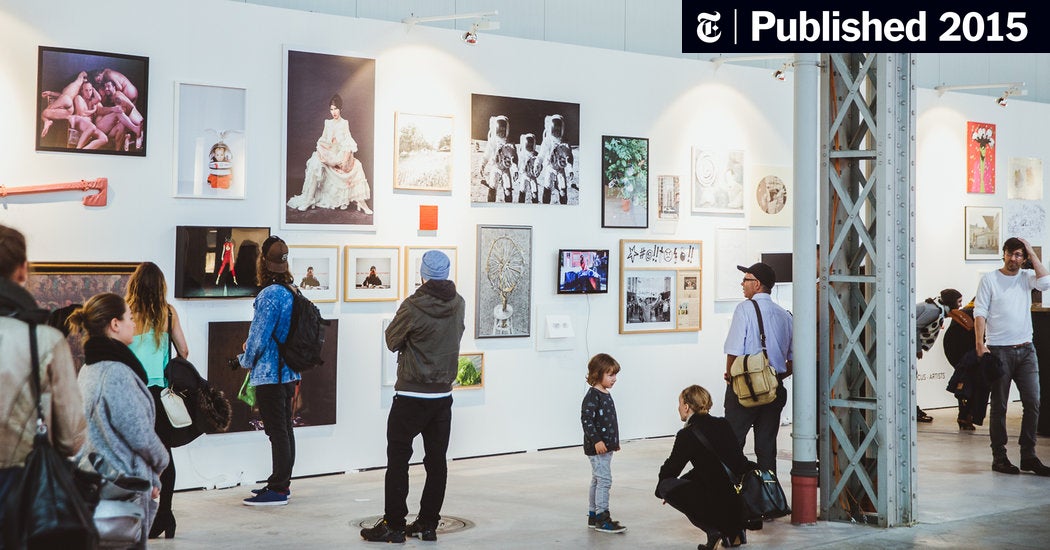“It’s not enough to have good artists or ambitious galleries,” said Annamaria Molnar, a gallery owner in Budapest, explaining that Vienna provided a stronger cultural environment that could attract international collectors. She came to the fair with a curated selection of work by emerging Hungarian artists who explore how humans recede in urban landscapes.
Her gallery sold a number of works for 1,000 to 4,000 euros, or $1,140 to $4,550, this year. Such income alone, at first, would not have allowed her, or others, to participate in international fairs like this one. But sponsorships are available in Vienna that enable Central and East European galleries to pay a reduced fair fee. “This fair has grown into a meeting point,” Ms. Molnar said. “There are experts here, leaders of institutions and collectors who are open to this region specifically.”
Besides the fair, Vienna offers a rich cultural program for visitors, with a number of art institutions of international standing — the Albertina, the Mumok Museum of Modern Art, the MAK or the Vienna State Opera — that are unequaled elsewhere in the region. The city often tops rankings in terms of quality of life and Austria is by far the wealthiest country compared with its Eastern neighbors. According to data from the European Group on Museum Statistics, museums here have several times more to spend than their Eastern counterparts and are visited by much larger crowds.
“We can do a lot for Eastern European art,” said Rainer Fuchs, deputy director of Mumok. “And Eastern European art does a lot for us.”
He added: “It’s important for the local art scene to internationalize and to learn political and historical sensibility, for instance, from the artists of the region.”
But as the refugee crisis has grown in intensity, many questions about the future were being asked here. Politics came up in most conversations: The far-right Freedom Party made significant gains in regional elections this month, especially in Vienna, a bastion of the left and a bellwether for the country’s voting landscape. With the right gaining momentum from the refugee crisis, many questioned whether Austria would extend the same welcome to people of other cultures as it has to Eastern Europe, and whether decades of generous cultural policies would be upended.
“More and more, Europe is like a big country,” Mr. Ivanov, the Bulgarian artist, said in a wishful thought shared by many here. “I still believe in this European project despite the obstacles and challenges.”

